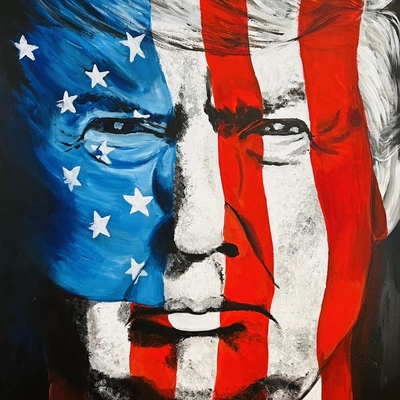Stay informed on the latest Truth Social posts from Donald Trump (@realDonaldTrump) without the doomscrolling. Consider it a public service for your mental health. (Why?)
- Jerome Powell should lower interest rates to 1-2%.
- Lowering interest rates would save the U.S. up to $1 trillion per year.
- The U.S. currently has virtually no inflation and a strong economy.
- The U.S. economy will improve further with tariff income and new factories.
- Jerome Powell is incompetent ('dumb guy', 'numbskull', 'total and complete moron') and biased ('Trump Hater').
- Biden should not have reappointed Powell.
- The Federal Reserve Board should override Powell's decisions.
- The U.S. central bank rate is too high compared to other countries, as illustrated by its position on the attached list.
The post explicitly calls for a drastic reduction in interest rates (to 1-2%) from a leading presidential candidate, directly criticizing the current Federal Reserve Chair and suggesting future intervention in monetary policy. This creates significant uncertainty regarding the independence of the central bank and future interest rate trajectories, which would have a major impact on corporate borrowing costs, equity valuations, and investor confidence.
The post focuses entirely on domestic economic policy, specifically U.S. monetary policy and the leadership of the Federal Reserve. There are no direct threats, ultimatums, or references to military actions or international conflicts, resulting in no geopolitical risk.
- Commodities: Oil (WTI) prices could see increased demand due to a weaker U.S. dollar, potentially leading to price increases, assuming global demand remains robust. Gold (XAU) prices are likely to increase as lower interest rates reduce the opportunity cost of holding gold, and political uncertainty regarding central bank independence enhances its safe-haven appeal.
- Currencies (Forex): The U.S. Dollar Index (DXY) would likely weaken significantly due to the explicit call for drastically lower interest rates, reducing the yield attractiveness of dollar-denominated assets. While the dollar might still act as a safe-haven during extreme global uncertainty, the explicit policy of lower rates would diminish its yield advantage and could challenge its long-term stability perception.
- Global Equities: Sentiment for European (e.g., STOXX 600) and Asian (e.g., Nikkei) markets would likely be mixed. Lower U.S. rates could be broadly stimulative and potentially make non-U.S. equities relatively more attractive. However, uncertainty over future U.S. economic policy (e.g., potential for increased tariffs) and the perceived undermining of central bank independence could create caution and volatility.
- Bonds (Fixed Income): A 'flight to safety' into U.S. Treasuries is likely due to policy uncertainty, which would initially drive yields lower. More significantly, the direct advocacy for U.S. central bank rates between 1% and 2% would exert substantial downward pressure on Treasury yields across the curve, reflecting the expectation of drastically lower future interest rates.

